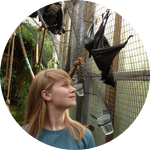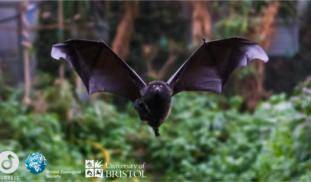Please wait...
About This Project
Livingstone's fruit bats (Pteropus livingstonii) are one of the rarest bats in the world, with only 1260 left in the wild. A captive breeding program of 71 individuals exists as a safeguard against extinction.
Funding would enable the vital investigation of relatedness in captive bats, allowing for the prevention of inbreeding, the assessment of hereditary diseases, the comparison of wild and captive genetics and ensure the continued success of the captive breeding program.

Browse Other Projects on Experiment
Related Projects
Using eDNA to examine protected California species in streams at Hastings Reserve
Hastings Reserve is home to three streams that provide critical habitat for sensitive native species. Through...
How do polar bears stay healthy on the world's worst diet?
Polar bears survive almost entirely on seal fat. Yet unlike humans who eat high-fat diets, polar bears never...
Uncovering hidden insect diversity associated with a likely undescribed gall-forming midge
Does a likely undescribed species of gall-forming midge (pers. comm. Ray Gagné) on Eriodictyon plants (Yerba...





